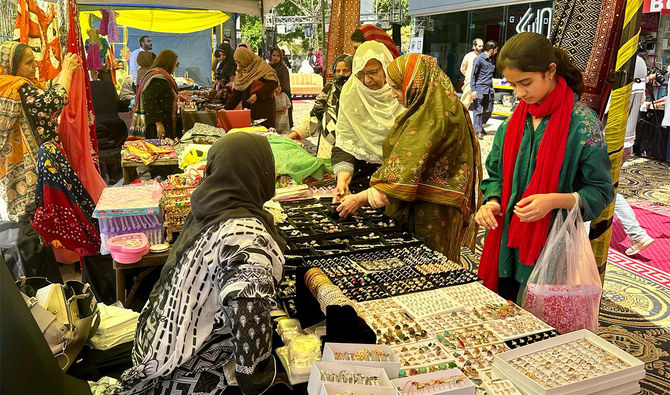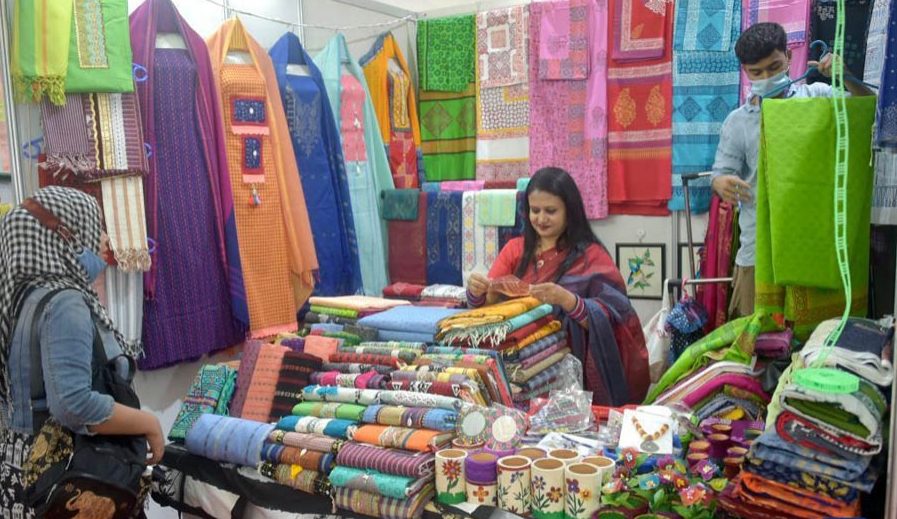Pakistan’s economic future is intrinsically tied to the empowerment of women entrepreneurs
Over the past few years, Pakistan has witnessed the emergence of a vibrant entrepreneurial culture, characterized by individuals across the country demonstrating resilience, creativity, and determination in establishing and growing businesses. During this time, we have witnessed a surge in the number of startups initiated and successfully operated by both young and energetic men and women alike.
However, despite the evident entrepreneurial spirit, a significant segment of Pakistan’s entrepreneurial potential remains untapped – that of women. While women are undeniably contributing to the success and growth of businesses in Pakistan, they often encounter a substantial obstacle along their entrepreneurial journey – limited access to formal banking services.
According to a report, there were 28 million female depositors in Pakistan as of 2022, of which 21 million were active. This indicates that women comprise almost 35% of all depositors in the country. Additionally, approximately 39% of all adult females have at least one bank account. However, Pakistan ranks fourth from the bottom for female financial inclusion, according to a World Bank survey covering over 135 countries and territories. Within Asia, Pakistan ranks as the third-lowest, following only Afghanistan and Yemen. Beyond Asia, only South Sudan exhibits a lower level of account ownership among women.
Financial institutions should design products catering specifically to women-owned businesses, addressing their unique needs and challenges.
Without delving into the debate surrounding the extent of women’s inclusion in the formal financial structure, it remains a stark reality that a significant percentage of Pakistani women remain unbanked. This isn’t merely a statistic; it reflects entrenched social norms, limited financial literacy, and a dearth of products tailored to women’s needs. Traditional gender roles often assign financial responsibility to men, diminishing the perceived necessity for women to have bank accounts.

Furthermore, complex documentation requirements and the distance to bank branches can create significant barriers, especially in rural areas. Additionally, some interpretations of Islamic law regarding interest-based transactions may deter a number of women from conventional banking.
Without bank accounts, women entrepreneurs face a multitude of challenges. Saving for future investments, accessing credit for business expansion, and even conducting secure transactions become difficult. This financial exclusion hinders their ability to grow their businesses and contribute fully to Pakistan’s economic development.
However, amidst these challenges, there are positive signs. Pakistan’s transition towards a mobile-first economy, with a Smartphone penetration rate of 82%, presents an unprecedented opportunity to bridge the gender gap in financial inclusion. Leveraging digital accounts can serve as a pivotal pathway for women to engage in business activities and conduct transactions online. The increasing availability of Sharia-compliant financial products further addresses religious concerns.
Initiatives like the digital accounts with their simplified procedures and mobile accessibility, aim to bring more women into the banking system. It seems quite clear that such initiatives will help narrow the gender gap in account ownership in the country.
Promoting women’s businesses is not just about individual success; it’s about bolstering Pakistan’s economy. Studies show that increased female participation in the workforce leads to significant GDP growth. By empowering women entrepreneurs with access to financial tools, Pakistan can unlock its full economic potential.
Continued efforts are needed to dismantle social barriers and promote financial literacy among women. Educational programs can help women understand the benefits of banking and available Sharia-compliant options.
Financial institutions should design products catering specifically to women-owned businesses, addressing their unique needs and challenges. Collaborations with NGOs and community leaders can further bridge the gap and reach women in rural areas.
Pakistan’s economic future is intrinsically tied to the empowerment of women entrepreneurs. When women are given equal access to banking services and financial resources, they can contribute significantly to economic growth and prosperity. By addressing the hurdle of financial exclusion faced by women and ensuring their access to formal banking services, Pakistan stands to unlock a wave of economic potential.
When women have access to financial resources, they can invest in education, healthcare, and other essential services for themselves and their families
Empowering women entrepreneurs has a ripple effect on various aspects of society and the economy. Firstly, when women are financially empowered, they can invest in their businesses, expand their operations, and create more employment opportunities. This leads to increased productivity and innovation within industries, ultimately driving economic growth.

When women have access to financial resources, they can invest in education, healthcare, and other essential services for themselves and their families. This, in turn, leads to improved health outcomes, better-educated children, and overall socio-economic development.
Promoting women’s access to banking services fosters gender equality and social inclusion. It sends a powerful message that women’s economic participation is valued and essential for the nation’s progress. This can lead to shifts in societal norms and attitudes towards gender roles, paving the way for a more equitable and inclusive society.
Women bring unique perspectives, skills, and talents to the table, leading to more innovative and sustainable business practices. This diversity strengthens industries and positions Pakistan as a competitive player in the global market.
In essence, empowering women entrepreneurs is a win-win scenario for everyone involved. It benefits women by providing them with opportunities for economic independence and self-fulfillment. It benefits businesses by tapping into a pool of diverse talent and driving innovation. And ultimately, it benefits Pakistan by fueling economic growth, fostering social progress, and building a more prosperous future for all its citizens.
Published under International Cooperation with "Sindh Courier"
Comments